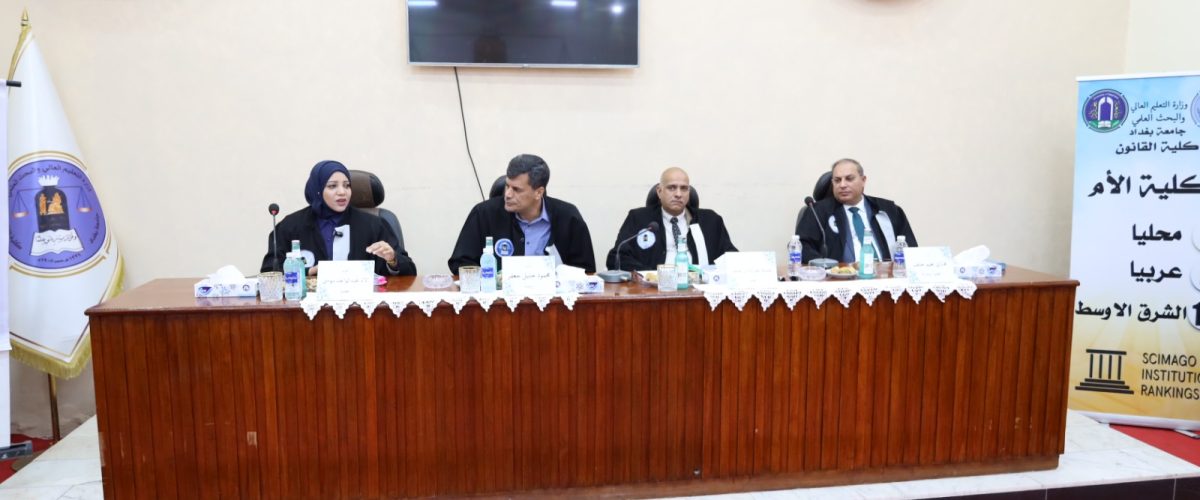The College of Law at the University of Baghdad Discusses a Master’s Thesis on the Principle of Prevention in International Environmental Law
The College of Law–University of Baghdad discussed a master’s thesis entitled “The Principle of Prevention in International Environmental Law” by the student Nabaa Mohammed Naji, from the International Law Department, on Sunday, June 22, 2025, in the College Conference Hall.
The examination committee consisted of:
1.Prof. Dr. Mahmoud Khalil Jaafar (Chairman)
2.Prof. Dr. Hussam Abdul Amir Khalaf (Member)
3.Asst. Prof. Dr. Alaa Abdulwahid Musa (Member)
4.Prof. Dr. Hadi Naeem Khalaf (Member and Supervisor)
🎯 The study aimed to highlight the effectiveness of the principle of prevention in reducing pollution and ensuring compensation for environmental damage, in light of the absence or inadequacy of clear and binding international or national legal mechanisms to curb environmental pollution. It also sought to determine the responsibility of parties causing environmental harm, the conditions for implementing the principle, the mechanisms adopted to achieve its goals, and the positions of international and national courts regarding the principle of prevention.
📚 The thesis comprised three chapters:
•Chapter One discussed the definition of the principle of prevention and distinguished it from other principles.
•Chapter Two addressed the conditions and enforcement mechanisms of the principle, as well as its scope of application.
•Chapter Three focused on the incorporation of the principle of prevention in international law and its judicial applications.
💡 The thesis concluded with several recommendations, the most notable of which are:
1.In light of the responsibility toward the environment, it is advisable for states to expand the application of the principle of prevention, especially in fields where the environmental impacts of certain human activities remain unclear or potentially harmful, to prevent serious negative consequences.
2.Penalties for environmental crimes should be strengthened on the criminal side, and on the financial side, the value of such penalties should be periodically updated to match economic changes and currency fluctuations to maintain their deterrent effect



